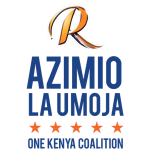But the chaotic events in one of Africa’s major economies, also a key U.S. ally, have led to questions about the debt choking many developing countries, and who is to blame.
International financial institutions
Kenya owes $80 billion in domestic and foreign debt. Its debt stands at 68 percent of GDP, well above the World Bank and IMF’s recommended maximum of 55 percent.
The tax hikes in Ruto’s unpopular bill were aimed at avoiding default and came after an agreement earlier this month between Kenya and the IMF on a comprehensive reform package.
Most of Kenya’s debt is owed to international bondholders, while its biggest bilateral creditor is China, to which it owes $5.7 billion.
Washington frequently accuses Beijing of “debt trap diplomacy” — unscrupulous lending that leaves developing countries overly burdened. China, which has undertaken large infrastructure projects across Africa under President Xi Jinping’s global Belt and Road Initiative, vehemently rejects the allegations.
Experts have different takes on whether China or Western monetary institutions are to blame for Kenya’s current woes. Kenya owes billions of dollars to Western countries and the IMF as well as China.
“The key culprit is the lack of a well-functioning global financial safety net,” said Kevin P. Gallagher, director of Boston University’s Global Development Policy Center.
“Programs from the International Monetary Fund and World Bank made the situation worse, rather than better, and the flaws in the G20 Common Framework to work out debt problems were seen as too risky for Kenya to enter into,” he said, referring to the debt restructuring mechanism that other indebted African countries like Zambia and Ghana have been using.
China’s role
Gallagher said China’s loans to Kenya have decreased in recent years, according to his university’s data, and it has little to do with the East Africa country’s debt woes.
“Indeed, the Kenyan case disproves accusations of ‘debt-trap diplomacy’ on the part of China. If China was doing debt trap diplomacy it would be seizing Kenyan assets, instead Chinese capital has been the most patient during these rough times,” Gallagher told VOA.
David Shinn, a former U.S. diplomat, said the blame couldn’t be placed on any one factor.
“China is the largest bilateral lender, but its loans are quite modest when compared to the international financial institutions and holders of Eurobonds,” he told VOA.
“All of these players share the blame for too much debt. The Kenyan government should not have allowed itself to take on so much debt and those who offered loans should have been more circumspect,” he continued.
Alex Vines, director of the Africa Program at Chatham House, was also even-handed, saying, “China is part of the debt burden, but private equity is also contributing to the overall burden.”
Aly-Khan Satchu, a Kenya-based economist, said Kenya was “in a perfect debt storm.”
“You know you’d get whiplash for looking at Kenya’s politics. From a period of looking east, we’re back to looking west again … and therefore a big decision has been made to wrestle Kenya away from the Chinese orbit, with the support of the World Bank and the IMF.”
However, Satchu said, one of the problems is that Kenya has had to reroute some of the IMF and World Bank’s money in order to pay its debts to China, particularly for a Chinese-built railway.
Harry Verhoeven, a senior researcher at Columbia University, told VOA neither China nor the IMF is uniquely responsible for Kenya’s problems.
“I think the IMF is not wrong in its diagnosis that there’s not enough revenue being raised, I think that’s certainly right,” he said. “Where you can be more critical of the IMF is, so far at least, that it hasn’t spoken up very much … about the distributional effects of how that revenue should be raised, or what the government has proposed to raise it.”
Other factors
Analysts note it wasn’t just loans that got Kenya into its fiscal predicament. The country was hard hit by the COVID-19 pandemic and has also suffered from the fallout of Russia’s war on Ukraine — which has seen global food and energy prices rise. Climate change-induced floods have also hurt the country’s economy.
Samuel Misati Nyandemo, a senior economics lecturer at the University of Nairobi, said the Kenyan government, having withdrawn the controversial finance bill, now has a tough road ahead.
“The government should try to balance between raising revenues and address the cost of living and doing business in the midst of entrenched corruption, impunity and wastage of public resources,” he said.
Kenya, he warned, might not be the last African country where frustrations boil over and citizens take to the streets.
In impassioned remarks in April, U.N. Secretary-General Antonio Guterres said, “the world cannot afford to continue throwing developing countries’ plans and futures onto a raging bonfire of debt.”
He said around 40% of the world’s population now live in countries that spend more on interest payments than health or education.


